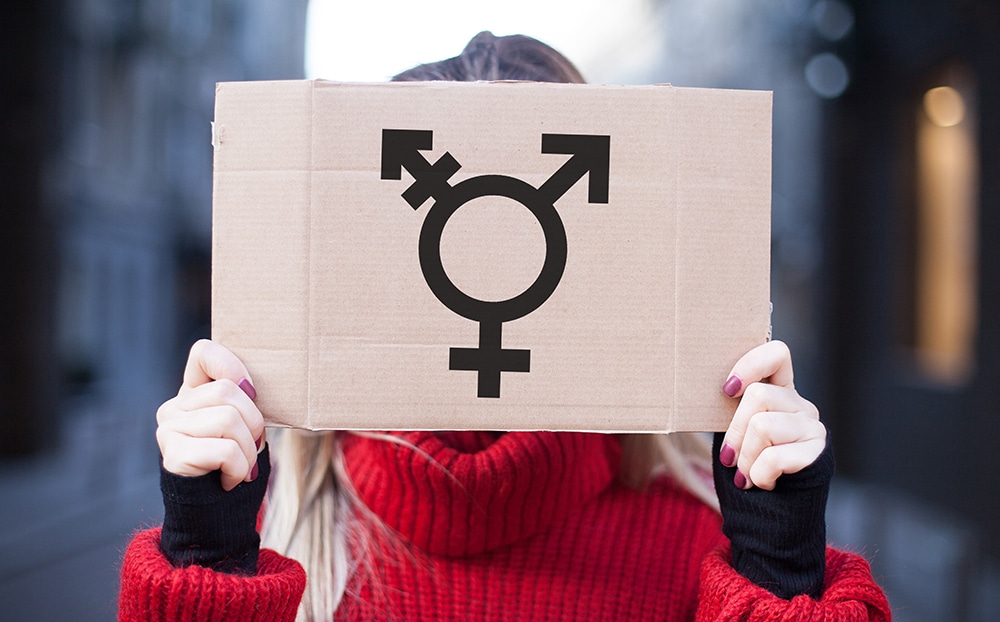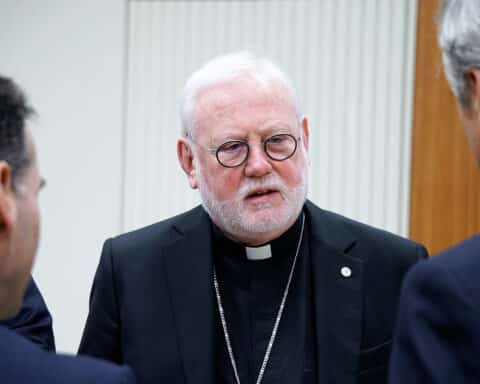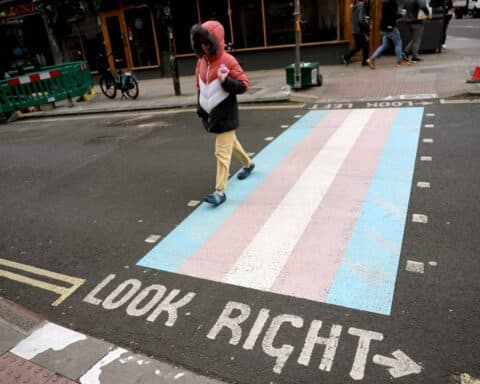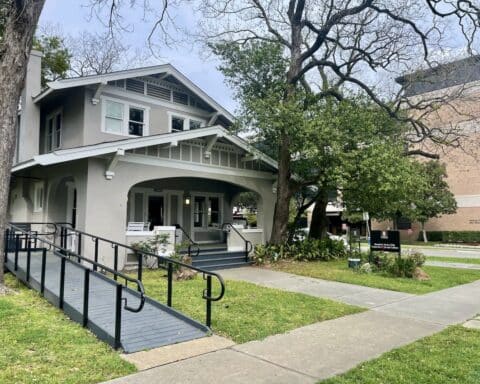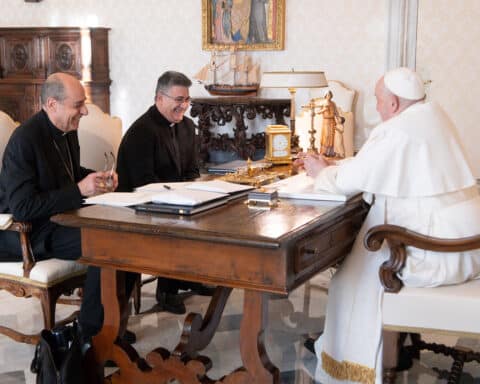Experts commended the U.S. Catholic bishops after they expressed concern about transgender medical interventions and instructed Catholic health care services not to perform such interventions.
“People need to hear the truth: we are created only male or female,” Mary Rice Hasson, the director of the Person and Identity Project and the Kate O’Beirne Senior Fellow at the Ethics and Public Policy Center, told Our Sunday Visitor. “The body is good and we need to respect God’s design for our bodies, our lives, and the created world.”
Teaching clarifies limits of medical intervention
She and others responded to a doctrinal note issued Monday by the U.S. Conference of Catholic Bishops’ (USCCB) Committee on Doctrine addressing the moral limits to technological manipulation of the human body. In it, the bishops expressed concern for “the range of technological interventions advocated by many in our society as treatments for what is termed ‘gender dysphoria‘ or ‘gender incongruence.'”
The bishops went on to define these interventions.
“These interventions involve the use of surgical or chemical techniques that aim to exchange the sex characteristics of a patient’s body for those of the opposite sex or for simulations thereof,” they wrote. “In the case of children, the exchange of sex characteristics is prepared by the administration of chemical puberty blockers, which arrest the natural course of puberty and prevent the development of some sex characteristics in the first place.”
Such interventions, the bishops taught, are not morally justified because they do not fit the two scenarios that allow for technological interventions on the human body: (1) to repair a defect or (2) to sacrifice a part of the body for the welfare of the whole body.
“Instead … these interventions are intended to transform the body so as to make it take on as much as possible the form of the opposite sex, contrary to the natural form of the body,” the bishops said. “They are attempts to alter the fundamental order and finality of the body and to replace it with something else.”
Transgenderism and Catholic health care
While treatments and interventions may differ, they hold the same basic purpose: “that of transforming sex characteristics of the body into those of the opposite sex,” the bishops said.
“Such interventions, thus, do not respect the fundamental order of the human person as an intrinsic unity of body and soul, with a body that is sexually differentiated,” they stressed. “Bodiliness is a fundamental aspect of human existence, and so is the sexual differentiation of the body.”
They went on to offer guidance for Catholic health care.
“Catholic health care services must not perform interventions, whether surgical or chemical, that aim to transform the sexual characteristics of a human body into those of the opposite sex or take part in the development of such procedure,” they said. “They must employ all appropriate resources to mitigate the suffering of those who struggle with gender incongruence, but the means used must respect the fundamental order of the human body.”
“Only by using morally appropriate means,” they added, “do healthcare providers show full respect for the dignity of each human person.”
According to the press release, the bishops developed the statement in consultation with a variety of experts, including medical ethicists, physicians, psychologists and moral theologians.
Catholic experts respond
Mary Rice Hasson expressed gratitude for the clarity provided by the note.
“Even within some Catholic circles there is a lot of confusion about whether medical interventions are morally licit,” she said. “The USCCB Doctrine Committee is clear: These interventions are not morally licit.”
The USCCB committee, she said, highlighted facts that “tend to be obscured in the media spin.” She went on to list three of them.
First, she said, “the person experiencing gender dysphoria or expressing a ‘trans’ identity has a perfectly healthy male or female body” or “there’s nothing wrong with it.”
Second, the “use of puberty blockers, cross-sex hormones and surgery for ‘transition’ purposes effectively disables the body’s natural functions, for no legitimate moral purpose,” she said.
“These interventions cannot turn a male into a female or vice versa,” she added. “All they can do is block or disrupt the body’s natural functioning — which causes harm to the body — and change the appearance of the person.”
Finally, she said, the note pointed to what she called an important conclusion: That the human person is either male or female.
“There is no new, special category of human beings called ‘trans people’ who supposedly are born in the wrong body,” she said. “That’s impossible.”
Recognizing identity or body-related distress
“We can recognize, as the Doctrinal Note does, that some individuals experience identity or body-related distress (‘gender dysphoria’), and we should seek moral means to lessen their suffering,” she said. “But chemically castrating or surgically altering a perfectly healthy human body does not heal emotional wounds.”
She cited the bishops’ conclusion: That the “search for solutions to problems of human suffering must continue, but it should be directed toward solutions that truly promote the flourishing of the human person in his or her bodily integrity.”
“Discontent with the body or one’s perceived social role can have many causes; we should seek insight, understanding and ways of helping the person heal,” she said. “But we cannot destroy the body in order to reinforce a person’s false belief about him or herself.”
Guiding Catholic ministries
Like Hasson, other Catholic experts stressed the need for clarity on gender.
“It is very important for the Church to speak clearly on the transgender issue, where there is so much cultural confusion,” Joseph Meaney, the president of the National Catholic Bioethics Center (NCBC), told Our Sunday Visitor.
As NCBC’s executive vice president, John F. Brehany, added that the bishops’ statement “provides much-needed guidance to Catholic health ministries, calling upon them to provide models of promoting the authentic good of persons.”
“Catholic health care should provide a space,” he said, “in which clinicians can find ways to help patients without mutilating their bodies or undermining their well-being.”
Dr. Michelle Cretella, a Catholic pediatrician member of the Catholic Medical Association and the former executive director of the American College of Pediatricians, told Our Sunday Visitor that the U.S. bishops recommendation “is in line with both the best science and the ancient medical ethics principle of ‘first do no harm.'”
“Rather than restore or facilitate function of a body system or organ, these chemical and surgical interventions disrupt normal healthy processes and physically destroy normal function of healthy body systems,” Cretella said. “Catholic health professionals, like all health professionals guided by this ethical principle, should welcome and abide by their guidance.”
Katie Yoder is a contributing editor to Our Sunday Visitor. Follow her on Twitter @k_yoder

